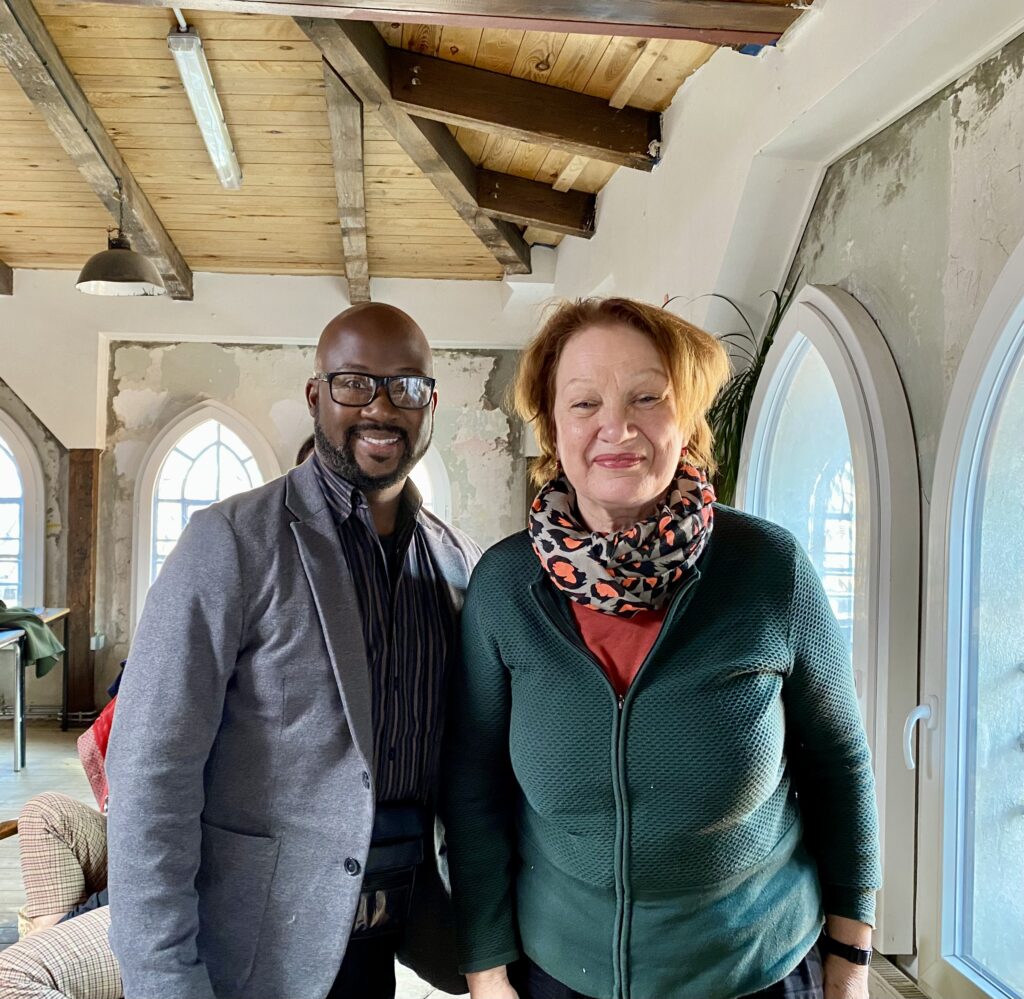Mellon Foundation Postdoctoral Fellow Dr. Jajuan Johnson is part of a cohort of fifteen experts dedicated to promoting an inclusive and progressive culture of remembrance in public spaces in Germany and the United States. Building a Diverse Culture of Remembrance (DAICOR) is an exchange program whereby participants explore how diversity, equity, and inclusion are implemented in memorial cultures.

During the Germany learning tour, Dr. Johnson introduced the Lemon Project as a model for reckoning with slavery and its legacies at higher education institutions to the cohort of artists, educators, activists, and nonprofit leaders. He also discussed service-learning as an intervention for understaffed cultural institutions doing reparative archival work and community-engaged research with citizens focused on decolonizing the public history landscape in Berlin and Hamburg.

The one-week visit involved conversations with political leaders such as Awet Tesfaiesus, the first Black woman elected to the German Parliament serving as Chairwoman of the Committee for Culture and Media. In addition to touring sites such as the Sachsenhausen Memorial and Museum and the Museum of Ethnology in Hamburg (MARKK), the fellows met with local civic actors with organizations such as Decolonial Memory Culture in the City, is a model project that aims to explore and make visible the past and present of the (anti-)colonial in Berlin, the rest of Germany and in Germany’s former colonies with the help of experts and activists worldwide.
The trip concluded with a lecture and discussion with artist and curator Hannimari Jokinen on the function of post-colonial memorials and strategies for reckoning with troubled pasts through community-engaged interpretation, as is reflected in the goals of Hearth Memorial to the Enslaved. As we collectively envisioned the uses of memorial sites, we agreed they are to be changeable, fluid, and provoking conversations that strengthen democratic societies.

